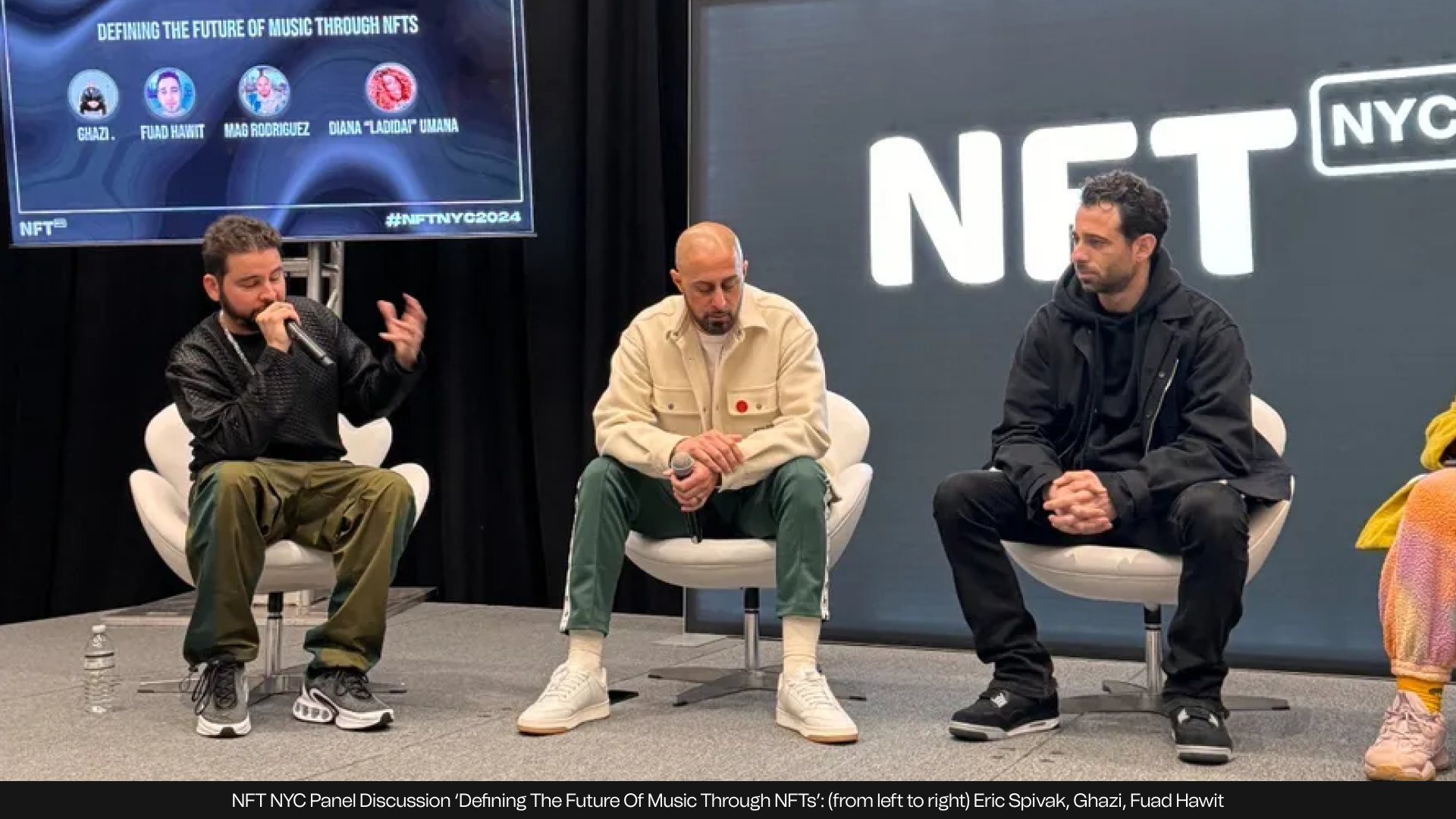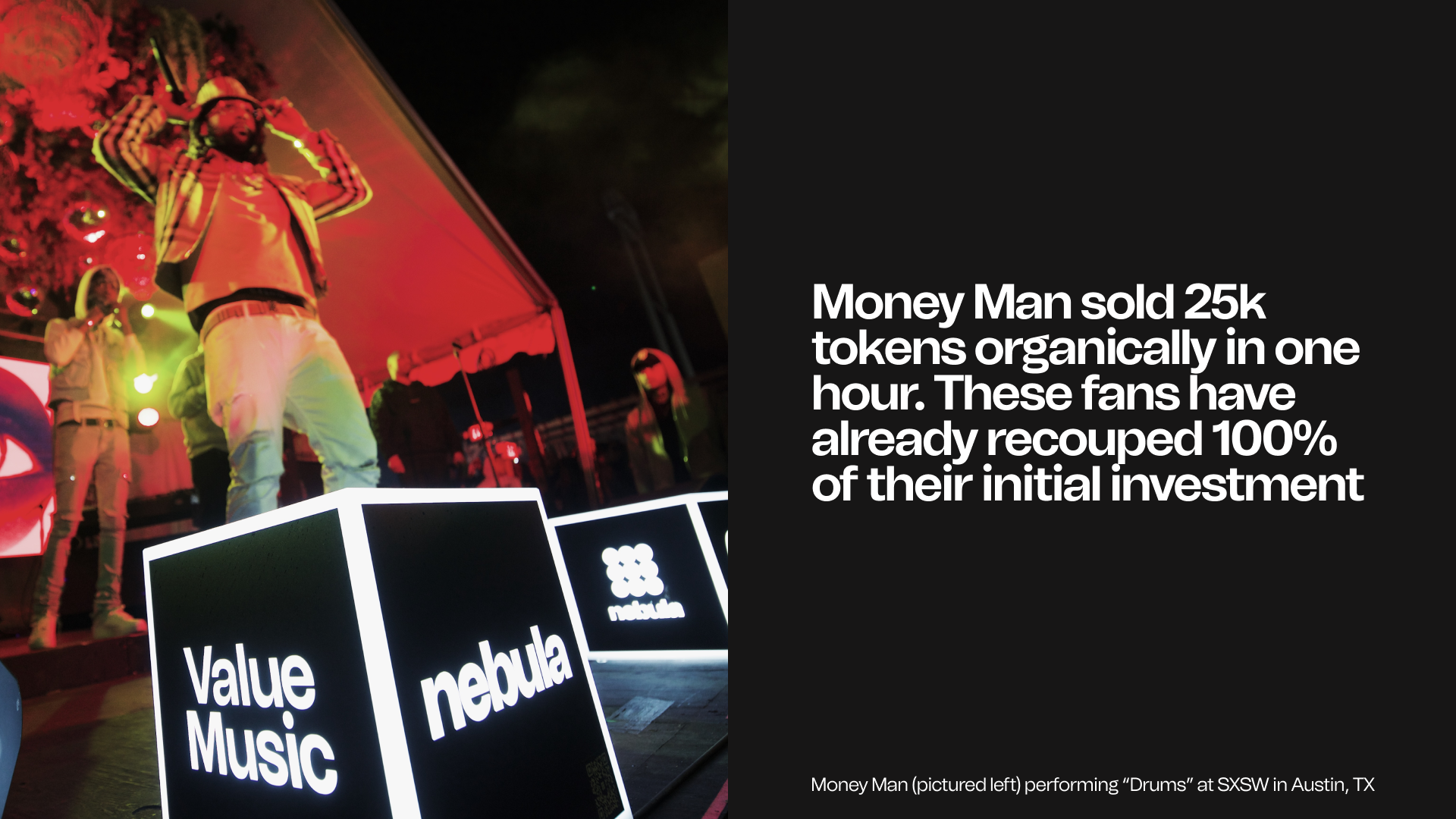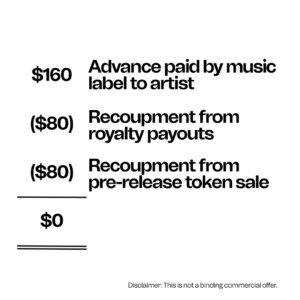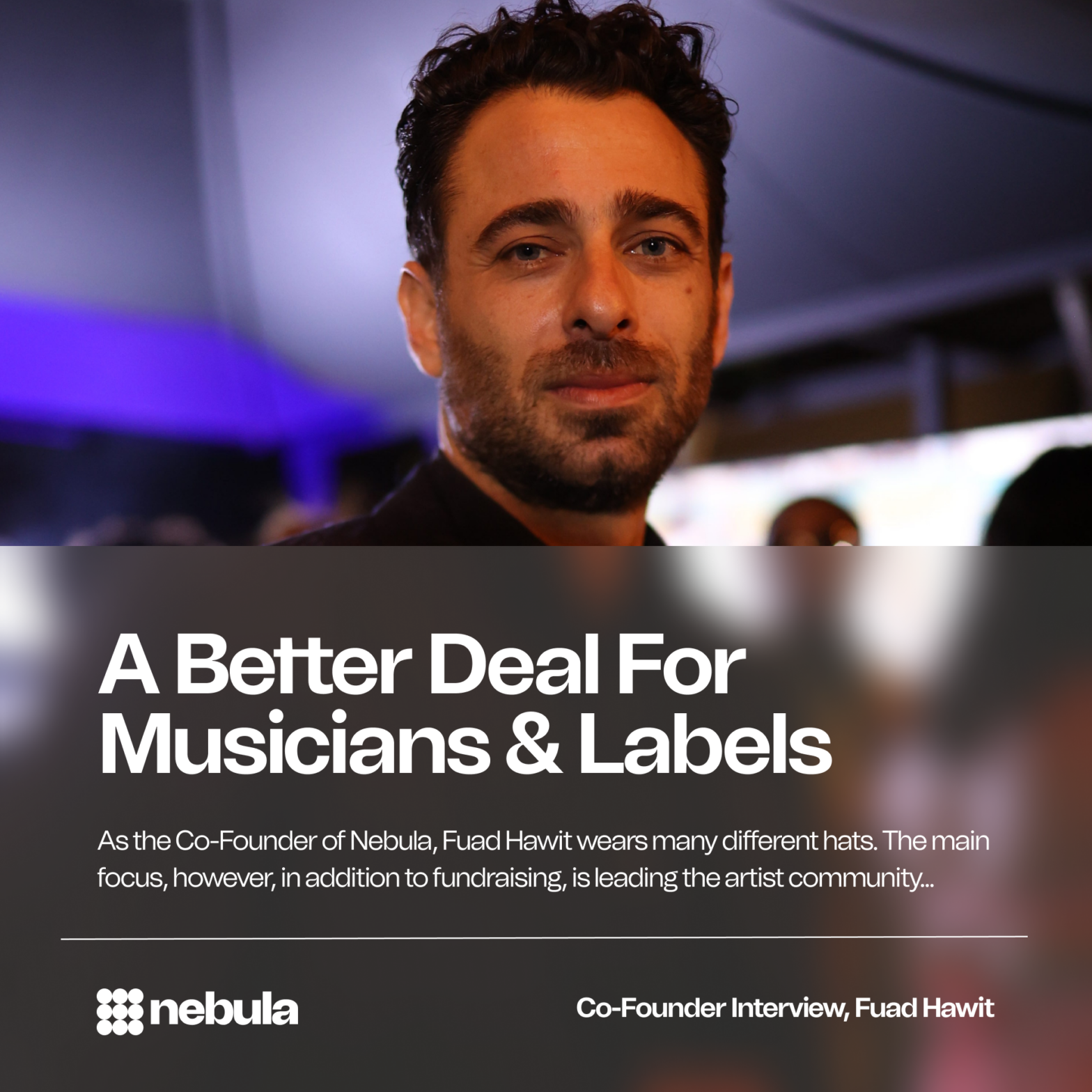As the Co-Founder of Nebula, Fuad Hawit wears many different hats. The main focus, however, in addition to fundraising, is leading the artist community, partnerships and business development.
Let’s gain a better understanding of why the music industry is not valuing and monetizing music as it could and how he works to overcome this problem.
First of all, thank you for taking the time. Let’s start off with a series of fast-paced questions to warm up:
Where are you based?
Fuad: “Los Angeles”
Which song or songs do you associate with your time in High School?
Fuad: “West Coast 90s Hip Hop”
Is the music industry in a good place?
Fuad: “No.”
Earlier this year, we saw you on stage at the NFT NYC panel discussion “Defining The Future Of Music Through NFTs”.
Why is there a need for change right now in the music industry considering that global recorded music revenues grew by 10.2% in 2023?
Fuad: “This growth was largely driven by an increase in paid streaming subscribers, which continues to be the dominant format, accounting for around two-thirds of global recorded music revenues. This is great news, no doubt, but it is not the best we can do to value music properly. Around 700,000 new songs are added each week to Spotify alone. However, the subscription price obviously does not increase every week. So, what we have is a dilution of music’s economic value every week. We are growing by devaluing music week by week. This cannot be a sustainable business model in the long run—unless you disagree with me that musicians should not be exploited.”

Ok, but why should we consumers pay more for music if we can get it for the same price or even for free?
Fuad: “Well, you don’t have to. Consumers can keep doing what they are doing. What we believe, however, is that there is more to it. Not so much an alternative to streaming but an important piece in the product cycle of music which is not being considered strong enough. It’s an added value. We don’t take business away from anyone.”
What’s the deal?
Fuad: “It’s the music creation and subsequent release. The moment all the pieces come together and the song, or album, comes to life. This is what’s really precious. That’s the core product. Streaming is the follow-up business. It’s rather suited to monetize a music catalog, an archive of songs so to say, but it’s underperforming when it comes to monetizing the music release because it does little to create momentum around the release.
Here’s an example: In April during the NFT NYC Conference, we announced together with Money Man the pre-release of “Tangled” on Nebula. This is part of the partnership we have with the independent music label EMPIRE. For two weeks before the official release, his fans had the opportunity to get a piece of future music royalty payouts. We priced the tokens at $1.50 each. On average, a consumer spent $64. The artist and the music label raised $37,500 for a 25% participation. The total song valuation when dropped on Nebula was $150,000.
When Money Man went on stage for the first time after the song’s release, the excitement was palpable. We were able to create momentum and a deeper connection between the artist and his community of superfans, and not just more money.
“Tangled” was the second time Money Man released a song with us. His first drop called “Drums” ft. Babyface Ray has already recouped 100% of the fans’ initial investment. That means that a fan invested in “Drums by Money Man” is receiving monthly cash payouts while listening to the song.”

What’s the Nebula deal when there is a Recoupment Agreement involved between artist and a music label?
Fuad: A recoupment agreement between an artist and a music label is a legal agreement between these two parties, and it’s their decision on how to agree. What we suggest, however, is to include the money raised during the pre-release sales in the equation.
Typically, a record label pays for a musical artist’s expenses, such as recording and marketing, and later deducts an equal amount from the artist’s royalties. We suggest including token sales as well.
Here is an example:

Two things are important to note here. First, we are able to reduce the marketing costs to ‘get heard’ at release by building a community of token holders and including the Nebula drop as part of the marketing roll out strategy. We have a highly engaged community of music investors who, once invested, want the song to perform well. They have skin in the game, so they will organically promote the song on social media or through word-of-mouth recommendations because this improves their chances to recoup as well. Second, we are proving our concept of fan-based music co-ownership. Our artists understand that giving your fans, let’s say, 20% of $100, is better than earning 100% of $60. Alongside your fans, you earn $80; alone, only $60.”
Thank you, Fuad, for this conversation.
To learn more, visit https://nebu.la/faq or contact us via the contact form or email at hello@nebu.la.
Nebula turns music into an investment asset, creating new value for artists and fans.

